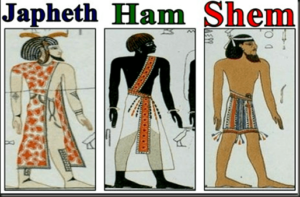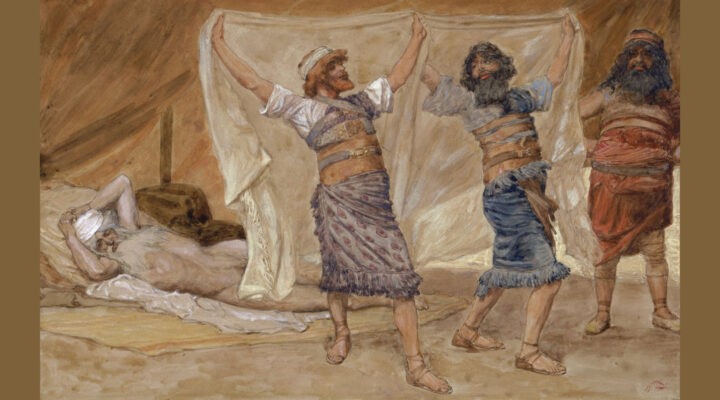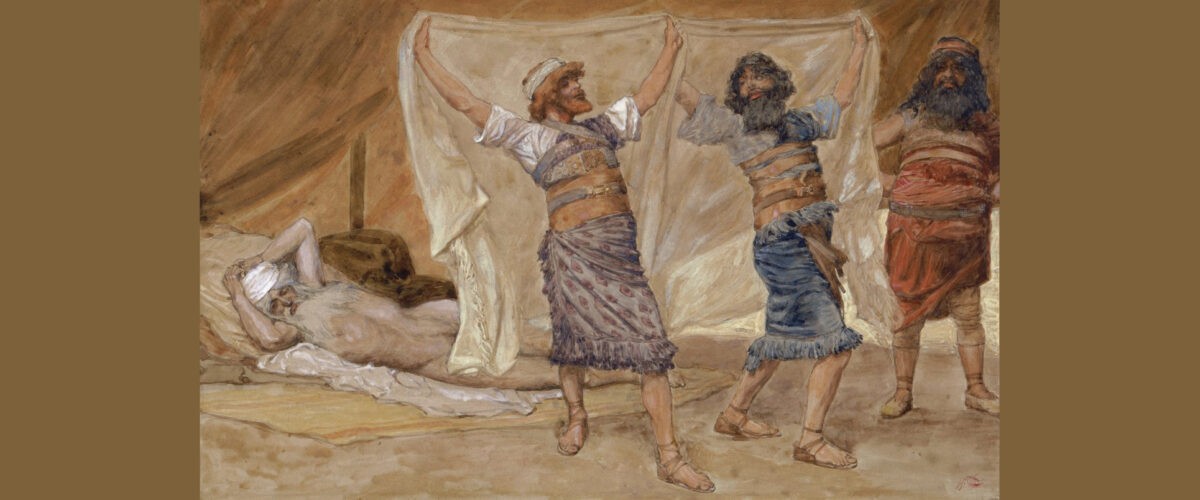She was a sweet white Christian woman in her sixties who was a seasoned saint. She even brought a Black friend with her to this particular author event on race. That is why her question baffled me.
“Are Black people cursed?” she asked. “Someone told me that a long time ago and they said it was in the Bible.”
I was stunned to find that even in 2022, there are some Christians who still believe a false message about the supposed “Black curse” placed upon the African race.

Charles Holley
The 1994 genocide in Rwanda Africa is a reminder of how dangerous it is to claim racial superiority by misinterpreting Scriptures. The African Hutu tribe attacked the Tutsi tribe, and when the killing ended, around 800,000 Tutsi and moderate Hutus were murdered — hacked by machetes, dismembered and slaughtered in other ways.
Although the conflict had several complex causes, one of the main drivers was the hatred the Hutus developed for their Tutsi brothers and sisters. They always had their differences, but that was magnified when European colonists brought the concept of race to the African tribes.
An online article explains how European colonists used the famous story of “The Curse of Ham” in the Bible to assign superiority to the Tutsi tribe and inferiority to the Hutu tribe. After years of racism and discrimination against the Hutus, they finally had enough. That is when the killing began.
According to the biblical account in Genesis 9:18-27, Noah had three sons — Shem, Ham and Japheth. Across time, Noah’s sons have been divided by historians into three races. Shem was assigned to the Semitic race (Jewish), Japheth to the European race (Caucasians), and Ham to the African race (Black).
 As the Scriptures explain, Ham disrespected his father Noah in some way that is not fully understood. As a result, Noah did not curse Ham (Ham previously had been blessed by God), but cursed Canaan, who was Ham’s fourth son. Noah proclaimed that Canaan (and his descendants) would be slaves to the descendants of Shem and Japheth. Remember that later interpreters used this story to separate Jews and Caucasians from Blacks.
As the Scriptures explain, Ham disrespected his father Noah in some way that is not fully understood. As a result, Noah did not curse Ham (Ham previously had been blessed by God), but cursed Canaan, who was Ham’s fourth son. Noah proclaimed that Canaan (and his descendants) would be slaves to the descendants of Shem and Japheth. Remember that later interpreters used this story to separate Jews and Caucasians from Blacks.
There are problems with this reasoning.
First, the exact time this biblical account took place cannot be known, but we can say it happened well over 4,000 years ago. That fact alone should pose the question: Has anything changed from then until now, and does this curse still apply today?
Yes, much has changed, and the curse does not apply today, nor did it apply during the pre-Civil War period. Many scholars agree the curse — if to be taken literally — was fulfilled in history long before the 17th century slave trade and the 1994 Rwanda genocide.
Second, according to this typology, it was Ham who represented the entire Black race, not Canaan. Ham was not cursed, but his fourth son, Canaan. That means Ham’s three other sons, Cush, Egypt (Mizraim) and Put, also members of the Black race — were not cursed (1 Chronicles 2:8).
And third, Jesus Christ received power over all curses when he died on the Cross and rose from the dead (Colossians 2:6-15). God did not want any race, including Canaan’s descendants, to be doomed forever under a curse — so he sent his only Son, in the likeness of humans, to die for the sins of the world and remove all curses. The Bible says Jesus became a curse for us so that we would not have to endure curses.
“Jesus took all the curses we deserved, whether inflicted by us or our ancestors, and nailed them to his Cross when he was crucified.”
See Galatians 3:13-14 — “Christ redeemed us from the curse of the law by becoming a curse for us — for it is written, ‘Cursed is everyone who is hanged on a tree’ — so that in Christ Jesus the blessing of Abraham might come to the Gentiles, so that we might receive the promised Spirit through faith.”
Jesus took all the curses we deserved, whether inflicted by us or our ancestors, and nailed them to his Cross when he was crucified. That includes the curse of Ham’s son Canaan. No longer does any descendent of Canaan have to live with a 4,000-year-old curse. The blood of Jesus Christ killed the curse.
As Christian leaders, we often assume there is no need to address certain issues we believe people already should know. However, the old saying, “Better to be safe than sorry,” certainly applies in this situation. If someone asks you if Black people are cursed, now you can tell them the good news: No! The Blood of Jesus Christ is much stronger than the curse of Canaan. Jesus removed the curse!
Charles Holley is a Baptist minister and author from Huntsville, Ala. He is the author of Black & White: Healing Racial Divide.
The curse of Ham: Black Baptists question their place in the SBC | Opinion by Alan Bean
Beware the Anti-Anti-Racist Evangelical Complex | Opinion by David Bumgardner
‘The Cross and the Lynching Tree’: A broken gospel | Opinion by Bill Leonard


